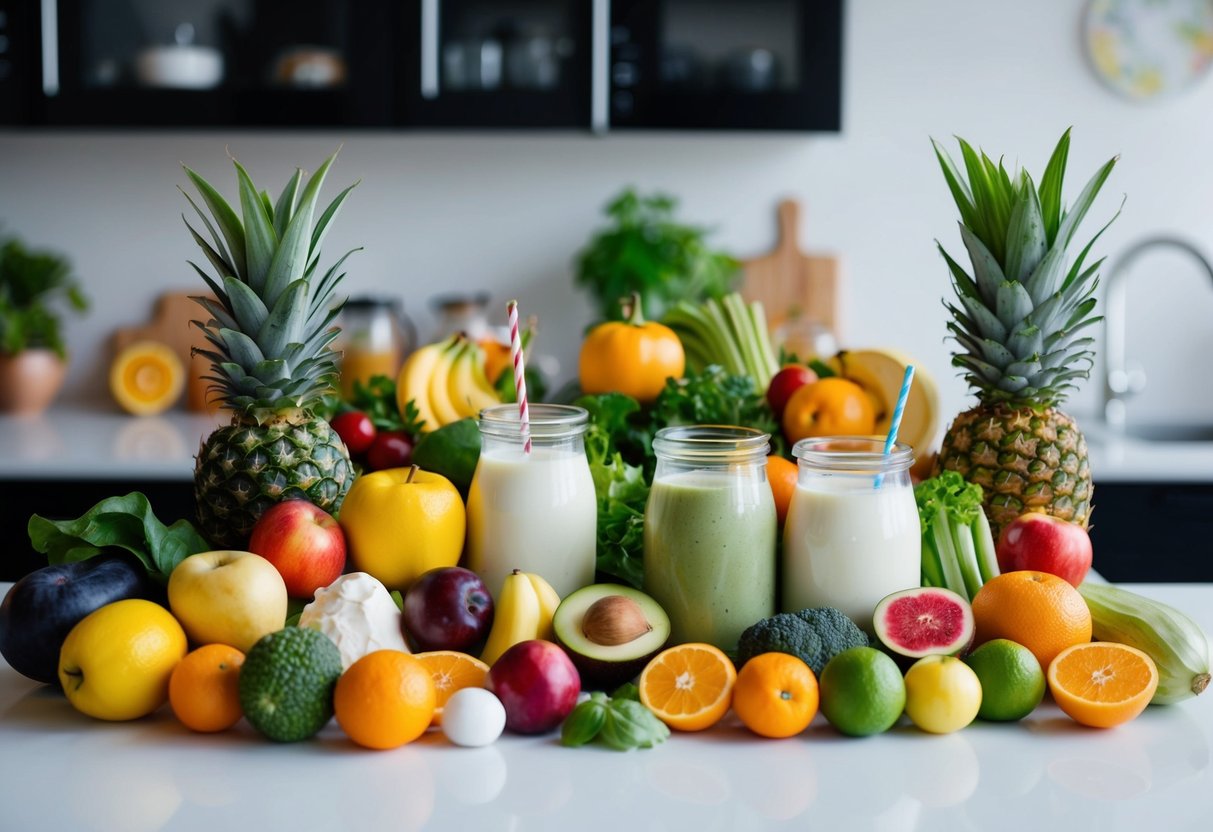DIY Probiotic Smoothies: Gut-Friendly Recipes for Better Digestion
Promoting a Healthy Gut
The gut microbiome plays a crucial role in maintaining digestive health. It comprises trillions of bacteria and other microorganisms that aid in breaking down food. A diverse microbiome encourages efficient digestion and bolsters immune function. Probiotic-rich foods and drinks can increase beneficial bacteria, enhancing gut diversity. Fermented foods like yogurt and kefir are excellent sources of probiotics. Adding fiber-rich foods, such as fruits and vegetables, can further nurture gut health by stimulating beneficial bacteria growth.
Maintaining regular eating habits and reducing stress are vital for gut function. High-stress levels can disrupt the gut environment, leading to digestive discomfort. Engaging in regular physical activity, staying hydrated, and getting adequate sleep also contribute to a balanced gut, reducing the occurrence of issues like constipation and irritable bowel syndrome.
Alleviating Digestive Issues with Smoothies
Smoothies are an effective way to incorporate gut-friendly nutrition into a daily diet. Ingredients like yogurt or kefir can serve as the base, offering a probiotic boost. Fruits like bananas and berries not only provide essential vitamins but are also high in fiber, which aids digestion. Adding greens, such as spinach or kale, can enhance the fiber content further.
Many people experience relief from digestive issues through regular consumption of nutrient-rich smoothies. For those struggling with bloating, smoothies with ginger or peppermint can be soothing. These ingredients have natural anti-inflammatory properties that can help ease digestive discomfort and promote a calmer digestive system.
Boosting Immune Function

Incorporating probiotic smoothies into a daily routine can enhance immune function by supporting beneficial gut bacteria and reducing inflammation. These drinks often include live active cultures and anti-inflammatory ingredients like ginger to bolster the body’s natural defenses.
Probiotics and Immunity
Probiotics, especially those with live active cultures, play a key role in boosting the immune system. They help maintain a balanced gut microbiome, which is essential for effective immune responses. By fostering a healthy environment in the digestive tract, these beneficial bacteria can limit harmful pathogens and reduce the risk of infections.
Research indicates that a well-nourished microbiome can stimulate immune cells, enhancing the body’s ability to fend off illnesses. Probiotic-rich ingredients such as yogurt, kefir, and fermented foods are commonly used in smoothies to harness these immunological benefits. Regular consumption of pro probiotic smoothies may contribute to fewer colds and decreased vulnerability to common infections, highlighting their practical role in everyday health maintenance.
Anti-Inflammatory Ingredients
Smoothies designed for immune support often feature anti-inflammatory ingredients. These components are vital in managing inflammation, a common immune trigger. Ginger, for instance, is a powerful anti-inflammatory agent. It contains compounds like gingerol that may reduce inflammatory responses in the body.
Turmeric, with its active compound curcumin, is another popular choice that can assist in lowering inflammation. Including such ingredients not only supports immune health but also contributes to overall well-being. Combined with other nutrient-rich foods, these components can provide a comprehensive approach to strengthening immune defenses and maintaining a balanced internal environment.
Special Considerations for Probiotic Smoothies
When crafting probiotic smoothies, it is important to manage their calorie content and potential digestive effects. Therefore, focusing on ingredient choices and understanding personal digestive tolerance can make probiotic smoothie consumption a more pleasant experience.
Managing Calories in Smoothies
Creating a probiotic smoothie can inadvertently increase one’s calorie intake if not monitored. Including high-calorie ingredients like avocados, nuts, and seeds can significantly raise the calorie count. Selecting low-calorie fruits such as berries and opting for water or low-fat yogurt as a base helps in making a lighter beverage.
To ensure balanced calorie intake, portion control is crucial. Keeping smoothie servings moderate while using a variety of nutrient-dense yet low-calorie ingredients aids in keeping the smoothie nutritious without unnecessary calorie overload. Individuals can experiment with proportions to tailor smoothies that align with their dietary goals.
